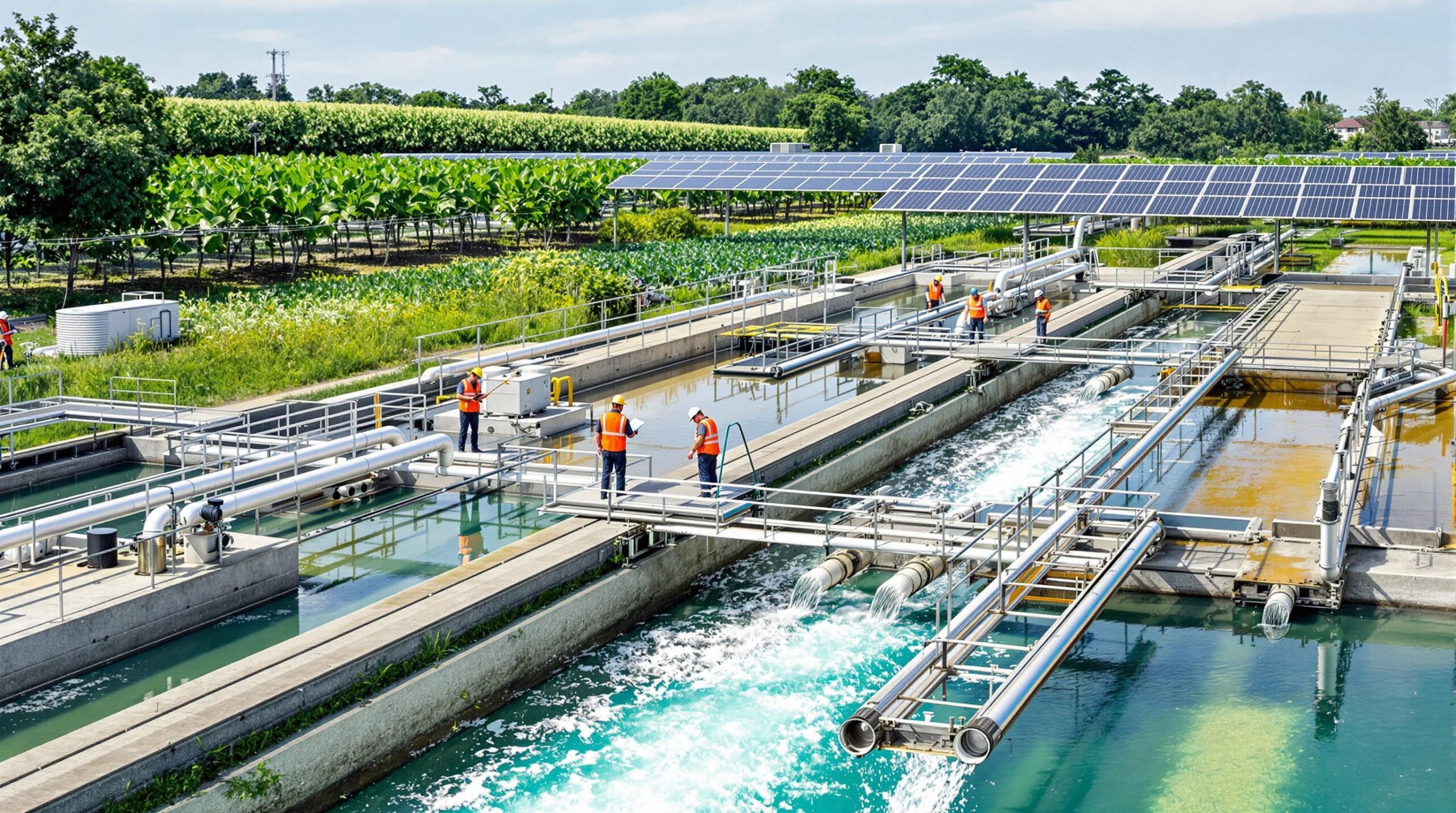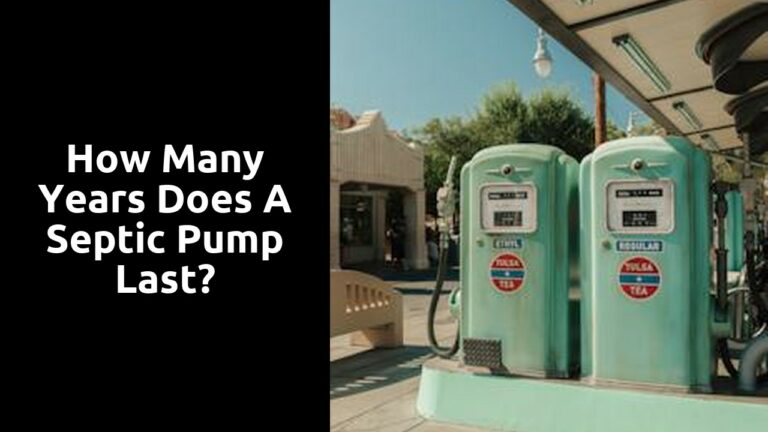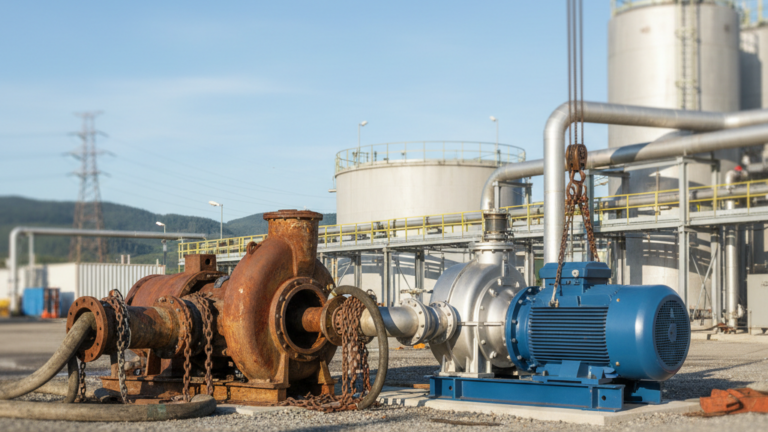Wastewater Treatment & Supply Experts | Sustainable Water Solutions That Work
Understanding the complexities of wastewater treatment is essential for effective wastewater management, particularly in the context of industrial and residential applications. Wastewater Treatment & Supply Experts provide insights into sustainable solutions that work, emphasizing the necessity of efficient wastewater treatment systems. These systems play a critical role in managing both industrial wastewaters and domestic effluents, ensuring that treated wastewater meets safety standards for reuse. Effective industrial water treatment not only mitigates the impact of waste water on the environment but also optimizes water resources. The proper handling and treatment of waste water can create sustainable water solutions that address the challenges posed by various types of wastewaters, ultimately promoting a healthier ecosystem.
Wastewater Treatment & Supply Experts | Sustainable Water Solutions That Work | The Importance of Wastewater Management
Effective wastewater management is crucial for protecting public health and the environment. Wastewater Treatment & Supply Experts focus on innovative strategies to ensure that sewage is treated efficiently, contributing to clean water supply and enhancing water quality. Through advanced water reclamation techniques, these experts convert treated wastewater into potable water, making the most of limited fresh water resources. Municipal water systems rely heavily on these sustainable water solutions, demonstrating the necessity of robust wastewater management practices.
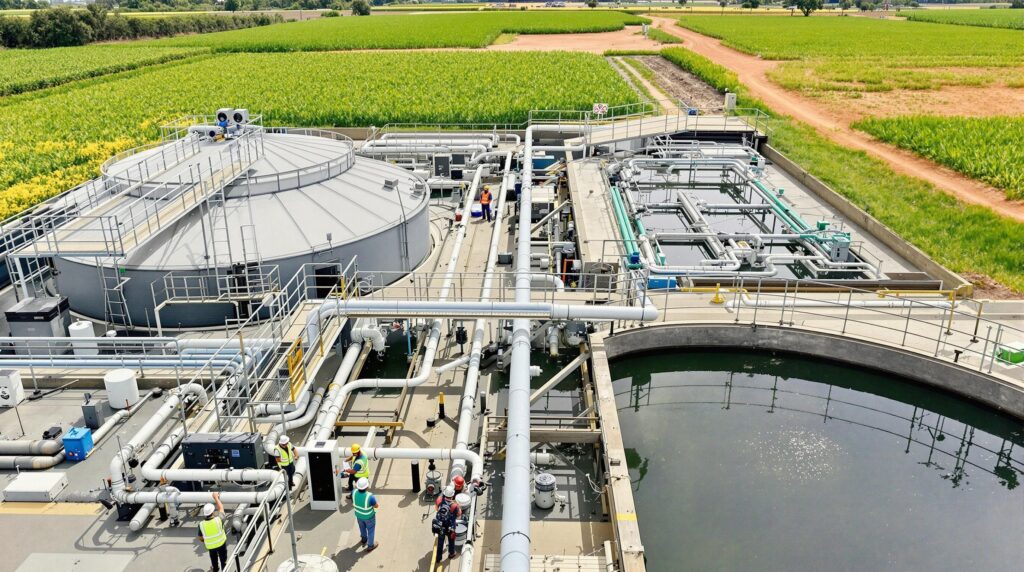
Sewage plants play a vital role in the overall water treatment landscape. They not only purify water but also promote water reuse, significantly reducing the demand on existing water resources. Implementing effective water management strategies leads to the sustainable operation of water supply systems. Wastewater Treatment & Supply Experts provide invaluable insights and technologies that enhance the efficiency of these processes, ensuring communities have access to safe, clean water.
- Improved public health through reduced contamination of water sources
- Enhanced environmental protection by minimizing pollutants released into ecosystems
- Increased water supply reliability through effective recycling and reuse of treated wastewater
- Support for agricultural practices by providing irrigation water from treated sources
- Cost-effective solutions that lower operational expenses for municipalities
- Use of cutting-edge technologies to optimize treatment processes and outcomes
- Promotion of community awareness and engagement in sustainable water practices
Key Components of a Wastewater Treatment Plant
A wastewater treatment plant consists of several essential components that work together to ensure the efficient processing of wastewater. These components include primary treatment tanks, secondary treatment systems, and tertiary filtration units. Wastewater Treatment & Supply Experts implement innovative water filtration techniques to enhance the quality of water released back into the environment. The goal is to transform raw water into safe drinking water, minimizing the impact on communities while addressing water shortages through sustainable practices.
Another critical aspect of wastewater treatment plants involves their ability to manage waste effectively. By employing advanced technology, these facilities can convert waste into valuable resources like biogas through waste-to-energy processes. This approach not only supports recycling efforts but also mitigates water wastage and reduces reliance on the chemicals industry. Wastewater Treatment & Supply Experts focus on sustainable water solutions that work, ensuring the delivery of high-quality municipal water for communities while promoting environmental stewardship.
Types of Wastewater
Understanding the various types of wastewater is essential for effective pollution control and environmental stewardship. Wastewater treatment & supply experts focus on developing sustainable water solutions that work by addressing the unique characteristics of both industrial and residential wastewater. Industrial wastewater often presents complexities such as higher contamination levels, necessitating advanced treatment methods like water desalination and sludge treatment. Conversely, residential wastewater typically contains organic matter that yields different treatment challenges. Implementing sustainable technology allows for the creation of wastewater treatment solutions that not only meet environmental regulations but also minimize environmental impact. By employing sustainable wastewater products, communities can enhance the quality of freshwater resources while tackling prevalent wastewater treatment problems, leading to complete wastewater treatment processes that benefit both people and ecosystems.
Industrial Wastewater: Characteristics and Challenges
Industrial wastewater presents unique characteristics and challenges that require specialized solutions. The variability in wastewater compositions from different industries can complicate treatment processes. Wastewater Treatment & Supply Experts develop tailored strategies to effectively meet the demands and challenges of treating water and wastewater. These experts utilize advanced wastewater treatment equipment to handle diverse wastewater needs, ensuring compliance with environmental regulations while promoting sustainable water treatment practices.
Addressing the wastewater dilemma demands innovative approaches and state-of-the-art wastewater systems innovation. The generation of industrial wastewater can significantly reduce the availability of clean water resources, making effective reclamation and water reuse critical. End-to-end solutions for water reuse and wastewater treatment are essential in creating a balance between operational efficiency and environmental responsibility. Wastewater Treatment & Supply Experts play a vital role in designing systems that not only optimize wastewater treatment processes but also contribute to sustainable water solutions that work.
| Industry | Typical Wastewater Characteristics | Challenges |
|---|---|---|
| Food and Beverage | High organic load, varying pH | Odor control, high biochemical oxygen demand (BOD) |
| Textile | Colored effluents, high chemical oxygen demand (COD) | Dye removal, water reuse |
| Chemical Manufacturing | Presence of hazardous substances, varying toxicity | Compliance with strict regulations, treatment of toxic byproducts |
| Metal Processing | Heavy metals, oils, and emulsions | Metal recovery, disposal of toxic sludges |
Residential vs. Industrial Wastewater
Residential wastewater typically consists of effluent from households that includes human waste, food scraps, and other organic material. The characteristics of residential wastewater generation differ significantly from industrial sources, as it often requires less intensive treatment processes. Wastewater treatment & supply experts emphasize the need for sustainable water management practices in residential systems to ensure effective treatment and minimize environmental impact. Aerobic wastewater treatment methods, combined with sustainable water solutions, can effectively address the challenges posed by residential sewage.
Industrial wastewater, on the other hand, is produced from manufacturing processes and has unique wastewater generation characteristics that can vary greatly from one industry to another. Often, this type of wastewater contains heavy metals, chemicals, and other pollutants that necessitate advanced treatment solutions. Wastewater lagoon systems and wastewater aeration are critical components of an effective sewage plant solution, allowing for the integration of robust treatment techniques. Water treatment industry innovations, such as integrated water treatment solutions, provide essential support in delivering sustainable water treatment solutions that address the complexities of industrial effluents.
Advanced Wastewater Solutions
Advanced wastewater solutions encompass a range of innovative water treatment techniques designed to address pressing water supply challenges. Wastewater Treatment & Supply Experts emphasize the significance of integrated water treatment systems that enhance water management practices for both municipal and commercial water treatment needs. These solutions focus on effective water reclamation systems that transform waste waters into reusable resources, contributing to water sustainability and the establishment of a water-sustainable society. Innovative approaches to surplus water treatment not only reduce environmental impacts but also optimize water production, ensuring responsible water waste discharge and promoting efficient utilization of resources. By prioritizing sustainable water solutions that work, communities can effectively tackle their water treatment needs while fostering a healthier ecosystem.
- Improved water quality through advanced filtration techniques
- Reduced energy consumption in wastewater treatment processes
- Enhanced nutrient recovery from wastewater for agricultural use
- Increased resilience against climate variability and water scarcity
- Streamlined regulatory compliance with advanced monitoring technologies
- Promotion of public health through better sanitation practices
- Integration of smart technology for real-time water management solutions
Innovative Wastewater Treatment Techniques
Innovative approaches in wastewater treatment are reshaping how we manage our water systems. Wastewater Treatment & Supply Experts focus on integrating complex water treatment techniques that include refurbished water treatment options and rental water treatment solutions. These cutting-edge methods enhance potable water quality while adhering to strict water regulations. Such advancements aim to deliver customized water treatment systems tailored to the specific needs of communities and industries, ensuring a secure water supply.
The implementation of waste-to-energy solutions exemplifies how innovative techniques can transform wastewater into a valuable resource. Full-service water treatment providers now offer commercial water filtration systems that not only treat but also recover water efficiently. By prioritizing quality water through advanced technology, these strategies contribute to sustainable water solutions that work effectively. The ongoing evolution of these innovations signifies a commitment to enhancing water recovery and maintaining high standards in wastewater management.
Subre Wastewater Treatment Methods
Subre wastewater treatment methods emphasize innovative approaches that align with the goals of Wastewater Treatment & Supply Experts | Sustainable Water Solutions That Work. These techniques often incorporate waste-to-energy treatment processes, effectively transforming commercial water systems into sustainable solutions. As part of a reclamation system, they focus on high-quality water recovery, ensuring that process waters can be treated and reused. This highlights the importance of water management play in creating systems that prioritize both efficiency and environmental stewardship.
Aerobic water treatment processes are pivotal in subre methods, promoting the breakdown of organic matter while generating reusable water. With a comprehensive suite of complete water services, professionals offer free water analysis to optimize operations. The ability to produce recleaned water not only aids in sustainability but also showcases the significance of implementing robust wastewater management strategies. Through these sustainable solutions, industries can significantly reduce their environmental footprint while maximizing the potential of their resources.
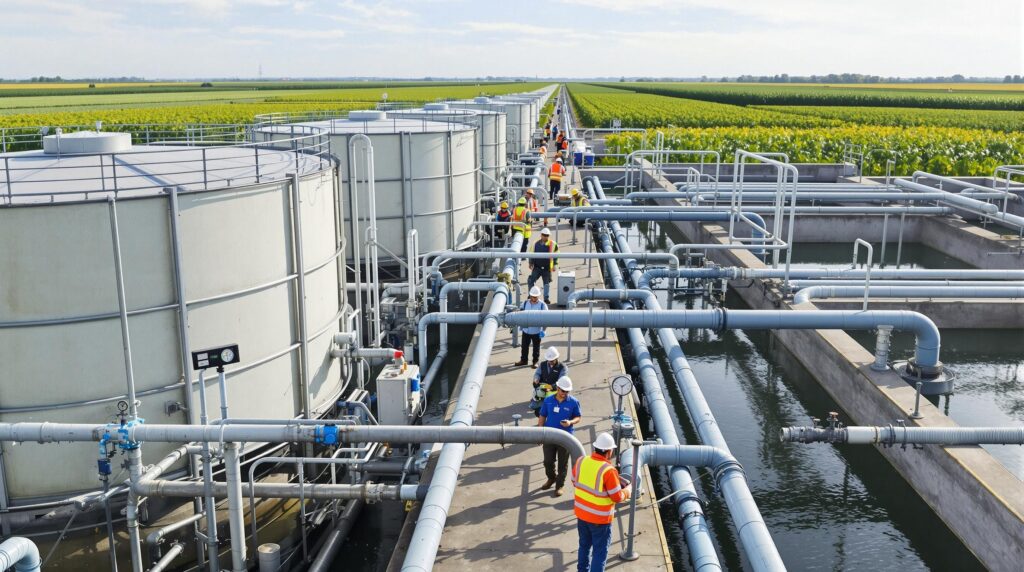
Sustainable Wastewater Management Practices
Efficient wastewater management requires a focus on sustainable processes that align with the principles of circular water initiatives. Wastewater Treatment & Supply Experts utilize advanced chemical treatment solutions and innovative cleanup operations to enhance water recovery rates, ensuring that high-quality water is reclaimed for reuse. Techniques such as process tank cleaning and the implementation of advanced wash bays effectively transform dirty water into a resource, significantly reducing water loss. By emphasizing the importance of these sustainable water solutions, wastewater treatment operations can achieve more effective reactor performance while contributing positively to environmental conservation.
Implementing Sustainable Water Solutions
Sustainable water solutions require the expertise of wastewater treatment and supply professionals. These experts design systems that focus on high-volume water treatment while emphasizing efficient sludge management. By implementing advanced cleaning processes, they can effectively turn polluted water into high-purity water suitable for various applications. The overarching goal of these sustainable systems is to achieve sustainable results, reducing freshwater dependence and ensuring that freshwater sources remain protected.
Achieving maximum water recovery is essential in a watersurplus environment. Wastewater Treatment & Supply Experts utilize innovative techniques for cleanup and efficient nutrient removal, which are crucial for maintaining a balance within ecosystems. By investing in comprehensive wastewater solutions such as cooker cleaning and other advanced methodologies, communities can safeguard their water resources and enhance overall sustainability. Implementing these strategies not only mitigates water scarcity but also enhances resilience against future water challenges.
| Water Solution Type | Description | Benefits |
|---|---|---|
| Advanced Filtration | Utilizes membranes and other technologies to remove contaminants from water. | Produces high-purity water, reduces chemical usage. |
| Bioremediation | Employs microorganisms to break down pollutants in wastewater. | Eco-friendly, enhances natural cleaning processes. |
| Nutrient Recovery Systems | Extracts valuable nutrients from wastewater for reuse. | Reduces waste, promotes circular economy. |
| Decentralized Treatment Systems | Local treatment options that reduce the need for extensive transportation. | Offers flexibility, lowers infrastructure costs. |
The Role of Wastewater Consultants in Sustainability
Wastewater consultants play a vital role in fostering sustainable practices throughout the water management sector. Their expertise helps municipalities, including municipal water districts, in creating circular water systems that minimize pollution and optimize resource use. By implementing innovative treatment solutions, they assist in transitioning to closed-loop water systems, ensuring that water is reused efficiently. These Wastewater Treatment & Supply Experts | Sustainable Water Solutions That Work provide insights on managing scaled water from industrial processes, helping organizations meet sustainability goals while reducing their chemical supply needs.
The collaboration between wastewater consultants and local governments enhances sustainable efficiency today. By designing and optimizing processes like settling tanks and various treatment solutions, they contribute to a circular water economy that benefits all stakeholders. Their guidance enables facilities to adopt practices that not only improve water quality but also support broader environmental objectives. With their specialized knowledge, these experts create pathways for integrating sustainable water solutions that work effectively within existing infrastructure, fostering a healthier ecosystem for future generations.
Wastewater Treatment Plant Operations
Effective wastewater treatment plant operations are critical for modern pollution control and play a vital role in maintaining long-term sustainability. Wastewater Treatment & Supply Experts implement innovative solutions involving various tanks and advanced techniques to ensure the effective purification of wastewater. The processes often require specialty chemicals to assist in the removal of dissolved salts and other contaminants, essential for industries like the specialty chemicals industry. By introducing methods like acid cleaning and utilizing lagoon systems, these operations help conserve resources while ensuring that reclaimed water meets safety standards. Solutions such as containerized plants enable flexibility and efficiency, allowing watersurplus to deliver effective treatment across diverse industrial processes.
Overview of a Wastewater Treatment Plant Process
A wastewater treatment plant process begins with the preliminary treatment stage, where large solids and debris are removed from the wastewater. Wastewater Treatment & Supply Experts focus on developing custom solutions for various industries to address their specific needs. The use of a biofilm reactor is a common technique at this stage to enhance the degradation of organic materials. For facilities generating acidic products and those employing caustic cleaning processes, these optimal solutions play a critical role in meeting industrial discharge limits and adhering to sustainable development goals.
Following preliminary treatment, the primary and secondary treatment stages utilize practical solutions to further filter and process the liquid discharge. Advanced methods, including those implemented by the Seas Water Group, ensure that the resulting effluent meets environmental standards. Complete solutions are necessary for achieving the desired water quality while treating wastewater in line with sustainable water solutions that work. This comprehensive approach is vital for industries striving to maintain compliance and contribute positively to environmental conservation efforts.
Conclusion
Wastewater Treatment & Supply Experts | Sustainable Water Solutions That Work focus on providing the right solutions to ensure effective management of wastewater. These experts emphasize the importance of eco-friendly practices that protect natural water bodies while treating wastewater for safe reuse or disposal. Techniques such as brackish water desalination offer innovative methods to purify water for drinking purposes, showcasing the potential of end-to-end solutions in water management. By integrating sustainable strategies into wastewater treatment processes, communities can achieve a balance between development and environmental preservation, highlighting the vital role of wastewater treatment in a sustainable future.
FAQS
What role does a wastewater lagoon play in the water and wastewater treatment process?
A wastewater lagoon is a crucial component in the water and wastewater treatment system, as it allows for the purification of water by providing a natural environment for biological processes to take place. This method is effective in industrial wastewater treatment and helps in the reclamation and treatment of waste water. Utilizing a wastewater lagoon can contribute to sustainable water systems by reducing pollutants and making the process of purifying water more efficient. Additionally, as part of end-to-end solutions for water reuse, these lagoons assist in the overall management and treatment of municipal water treatment needs, thereby emphasizing the importance of sustainable practices that enhance water recovery and reduce environmental impact.
How do sustainable water treatment solutions address the importance of water reuse and reclamation in the production process?
Sustainable water treatment solutions are essential for addressing the importance of water reuse and reclamation, particularly in an era where traditional sources of freshwater are becoming scarce. By implementing advanced technologies and wastewater equipment, these end-to-end solutions for water reuse not only reduce the volume of waste water treatment needed but also enhance the overall efficiency of the production process. Solutions such as sewage plant solutions and right wastewater engineering practices can lead to innovative approaches that turn polluted water into safe, reusable sources, illustrating the critical role that sustainable practices play in maintaining a reliable water supply. Watersurplus delivers these sustainable water treatment solutions to help transform waste water into a valuable resource.
How do sustainable practices enhance new water treatment methodologies for seawater reclamation and wastewater reduces pollution?
Sustainable practices enhance new water treatment methodologies by implementing end-to-end solutions for water reuse and reclamation. These approaches, like those offered by Watersurplus, help in turning polluted water into clean water, thereby demonstrating the importance of water conservation. Nowsustainable water treatment techniques are essential for effectively managing wastewater and improving the overall health of our water systems.
What are the benefits of using seawater in end-to-end solutions for water reuse, reclamation, and wastewater treatment?
Utilizing seawater in end-to-end solutions for water reuse and reclamation significantly enhances wastewater treatment processes. This approach reduces the pollution that typically arises from wastewater and emphasizes the importance of water sustainability. Watersurplus delivers sustainable water treatment solutions that turn pollutes water into a resource, thereby benefiting both the environment and society.
How do end-to-end solutions for water reuse and reclamation address the importance of water in minimizing wastewater reductions?
End-to-end solutions for water reuse, reclamation, and wastewater treatment significantly emphasize the importance of water by implementing comprehensive strategies that treat and recycle wastewater. These solutions reduce wastewater, thus conserving freshwater resources and ensuring sustainable water management practices.
How do sustainable practices in wastewater management highlight the importance of water in reducing wastewater?
Sustainable practices in wastewater management emphasize the importance of water by implementing efficient systems that reduce wastewater output. These systems optimize the use of resources and minimize the volume of wastewater generated, ultimately leading to more effective processes that significantly reduce wastewater. By ensuring that every drop of water is used wisely, the importance of water is highlighted through initiatives that promote conservation and enhance the overall efficiency of water management.
How does wastewater management impact the importance of water conservation in reducing overall wastewater reduces?
Effective wastewater management is crucial as it emphasizes the importance of water conservation. By implementing strategies that focus on reducing wastewater, facilities can significantly minimize their water consumption, thereby highlighting the importance water plays in sustainable environmental practices.
How can implementing effective wastewater management strategies help in reducing wastewater generates?
Implementing effective wastewater management strategies is crucial as they focus on minimizing wastewater generates through various approaches. These methods can include optimizing treatment processes, increasing water reuse initiatives, and adopting sustainable practices, which ultimately contribute to significant reductions in the overall wastewater reduces.

